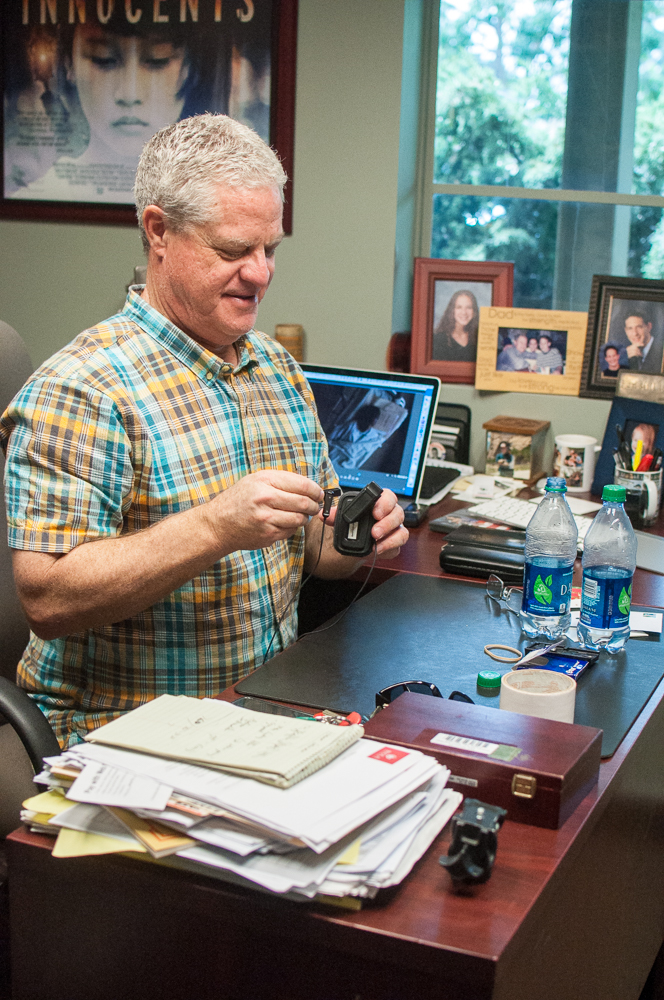This story is part one of a four-part series about sexual assault on and off Biola’s campus.
Biola has fewer reports of sexual assaults and harassment than other schools its size, but this may be due to a gap in federal requirements that ignore statistics in incidents that occur on non-Biola-related property.
FEDERAL FILING
Only sexual assault allegations that occurred on Biola’s main, satellite and study abroad campuses appear in the annual security reports published on the Campus Safety website in accordance with the federal Clery Act.
Forcible sex crimes that occur in student-rented housing, commuter homes or otherwise off-campus are not filed federally, unless they took place on the narrowly defined public property — meaning La Mirada Creek Park and the sidewalks of Rosecrans and Biola Avenue connected to Biola’s campus. Major roads nearby such as Imperial Highway or off-campus housing that is not owned by Biola are not included in the public property or non-campus statistics. This leaves a gap in the statistics Biola provides to the U.S. Department of Education.
In other words, a case of sexual battery reported on Biola’s study abroad campus in Heidelberg, Germany will be recorded for future student and public awareness, but a rape in a house rented by students on Biola Avenue in La Mirada, California will not.
ON AND OFF-CAMPUS ASSAULT
Although 41 percent of Biola students live off-campus, students may be unaware of the five off-campus reports of sexual assault, battery and harassment in 2014 and the four already reported in 2015. The annual security report, which currently only displays data for 2011-2013, will not be updated until this October.
What counts as public property and campus boundaries are within mere feet of each other, resulting in different reporting requirements, which is best exemplified in two instances: one that occurred at Creek Park and another on Tacuba Drive. In the beginning of March, a young woman was allegedly assaulted at Creek Park by a man she met through the anonymous chat app, Yik Yak. Then, on April 16, the Los Angeles Sheriff’s Department notified Campus Safety of a sexual assault that occurred near Tacuba Drive. Of the two incidents — which are both still being investigated — only the incident at Creek Park will be recorded in the 2015 annual security report.
In addition to these off-campus incidents, there has also been an increase in on-campus assaults. In November and December 2014, two cases of sexual assault interrupted Biola’s three-year clean record of forcible sex offenses on campus. Student Development reported to Campus Safety an incident of sexual battery that took place in the early hours of December 12, 2014 between two Biola students in Horton Hall.
Another case of sexual battery was reported in Hope Hall on November 15, and was specified as forcible fondling. While the case was referred to Student Development staff for follow-up, the alleged assailant was removed from student housing, said John Ojeisekhoba, Chief of Campus Safety at Biola University.
Chief Ojeisekhoba would only further classify the case as “complicated,” as the student’s departure was necessary in order to avoid inconveniencing the victim.
“At Biola, as you can imagine, the number of incidents are less than it would be on a secular campus. But we are not immune to anything that happens on a secular campus and we know that,” said Ron Mooradian, Senior Director of Human Resources and Lead University Title IX Coordinator.
However, these two cases of forcible sex crimes in campus residence halls only scratch the surface of reports of sexual assault and harassment among Biola’s undergraduate students.
Campus Safety and Student Development operate in complete accordance with the Student Right to Know Act, constantly updating a daily crime log on the Campus Safety website and the weekly crime log that Campus Safety dispatch provides for the “Chimes” to publish. Other Christian schools, such as Vanguard and Azusa Pacific, do not publish a weekly or daily crime log.
Despite these unnoticed statistics, the number of on-campus forcible sex crimes Biola reports through the Clery Act is still one of the lowest amounts for schools of its size — even compared to other religious institutions. Loyola Marymount University reported seven forcible sex crimes on their main campus in 2013 and Chapman University reported five. Azusa Pacific University, with an enrollment almost twice as much as other California Christian universities, reported 22 since 2011.







